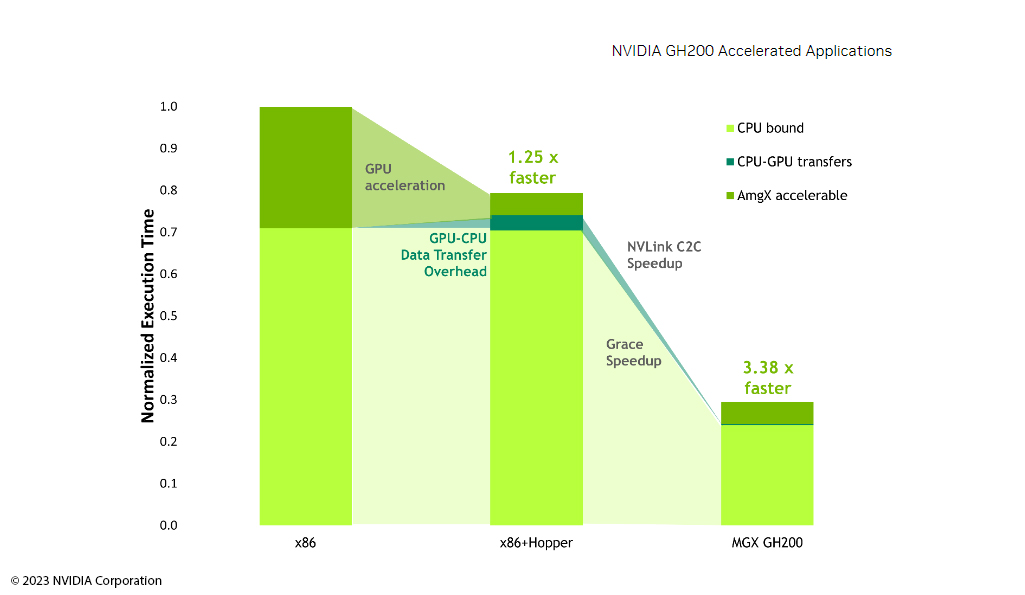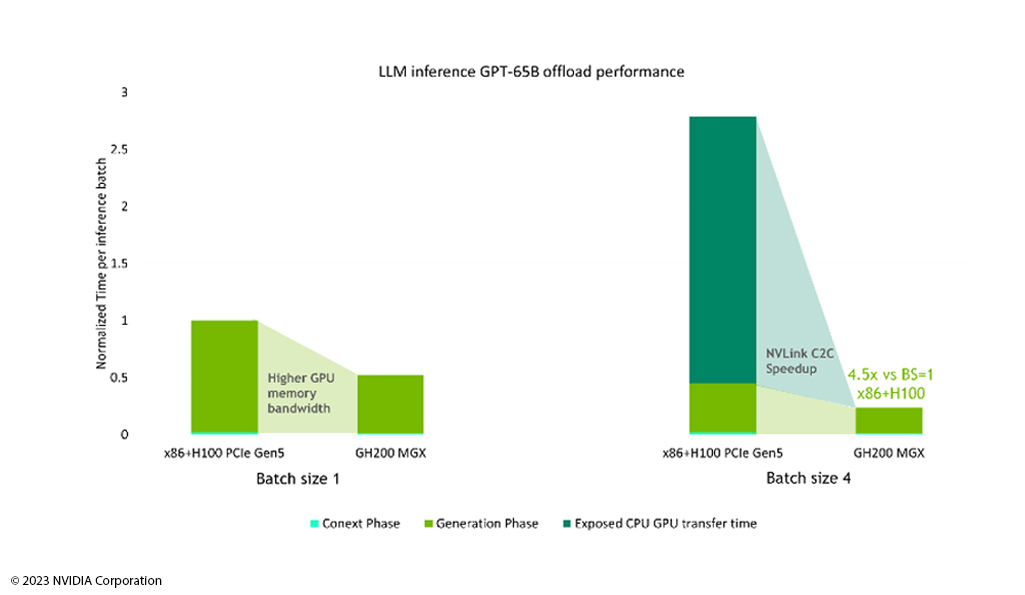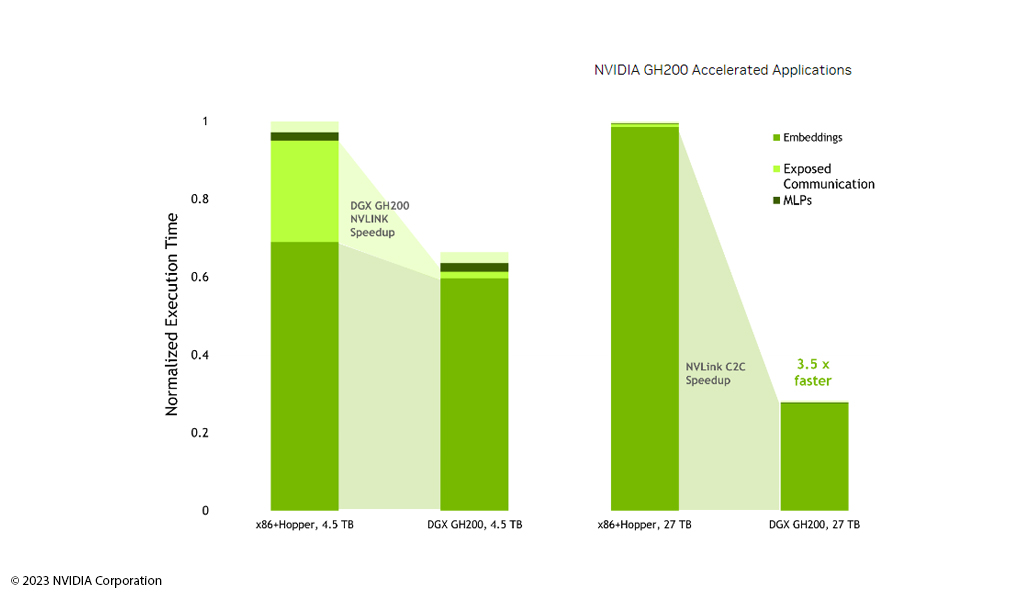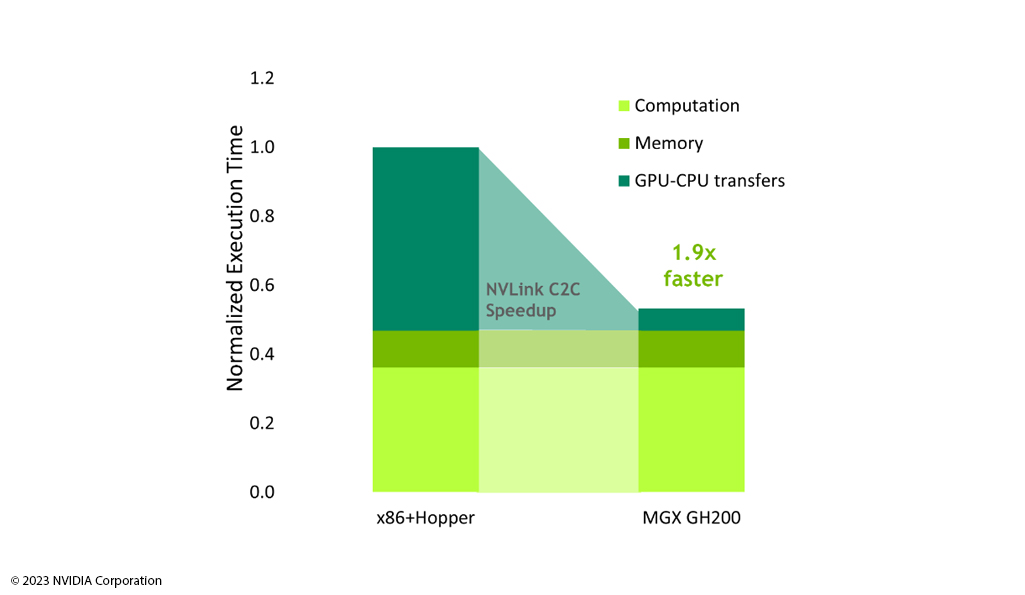
The demand for artificial intelligence (AI) is constantly increasing and so is the need for computing capacity. AI applications such as deep learning, simulations or predictions require extremely powerful hardware in order to generate valid results from complex data sets. NVIDIA's Grace Hopper perfectly meets these requirements today and in the future: the superchip was specially developed for training large AI models, generative AI, recommender systems and data analytics.
Click Here for 1st Hand Superchip Knowledge
AI today - Ready for Take-off
The progress of smart AI technologies has increased rapidly in the past few years: AI applications such as chat GPT, simulations in domains such as medicine or recommender systems in online stores solve complex tasks and make our everyday lives easier. More intelligent algorithms and more complex data analyses are multiplying the possible applications. However, AI-driven progress requires computing power - and ever more of it. System architectures such as NVIDIA's Grace Hopper provide the necessary power for rapidly developing AI technologies.
- Powerful: Grace Hopper's combination of GPU, CPU and NVLink interconnect provides maximum performance across many benchmarks.
- Versatile: There are already many applications running on Grace Hopper and the number is growing.
- Energy-saving: NVIDIA Grace Hopper requires less energy compared to x86 systems.
Free Webinar April 25, 2024
Best Practices For Your Success
Server systems with NVIDIA Grace Hopper Superchip:
The first Choice for your CEA Workloads
-
Learn more about the most powerful architecture on the market today to help you
quickly master large-scale AI calculations and complex CAE simulations.
- Introducing Grace Hopper:
Get to know the powerful architecture of the NVIDIA Hopper GPU with the Grace CPU
(ARM Architecture) and the fast NVLink Chip-2-Chip (C2C). - Optimized Performance:
NVIDIA's Grace Hopper superchip delivers tremendous performance to handle
large CAE/CFD workloads in the shortest possible time. - Benchmark Insights:
Grace Hopper Server-Systems performs particularly well with the CFD software OpenFOAM.
Learn more details with selected benchmarks. - Order Now:
NVIDIA Grace Hopper Superchip is available from GNS Systems.
There is a special offer for the International Supercomputing Conference 2024.
Learn more in the webinar. - Watch the Webinar on April 25, 2024 at 3pm
with Ian Pegler (NVIDIA), Sergey Shatov (NVIDIA) and Dominic McKendry (GNS Systems)
to learn more about the most powerful architecture for large-scale CAE/CFD workloads
on the market today. The webinar will be in English.
Register now
Your Individual Consultation for
5 x Higher Performance
Do you have any questions? Then get in touch with us. Our experts will be happy to advise you on all aspects of Grace Hopper and high-performance server systems for efficient AI use.
Best Performance for AI
large data sets, for example in deep learning algorithms. The NVIDIA Grace Hopper systems are currently among the most powerful architectures on the market.
The new combination of NVIDIA Hopper GPU with the Grace CPU (ARM architecture) and the fast NVLink Chip-2-Chip (C2C) offers up to five times
higher performance for applications than comparable x86 systems.
Architecture Features
Grace Hopper combines the powerful NVIDIA Hopper GPU with the Grace CPU (ARM Architecture) and connects it with the fast NVLink Chip-2-Chip (C2C).
The first NVIDIA data center CPU for HPC and AI workloads, the NVIDIA Grace CPU uses 72 Arm Neoverse V2 CPU cores to get the maximum per-thread performance out of the system. Up to 480 GB LPDDR5X memory provides the optimal balance between memory capacity, energy efficiency and performance.
NVIDIA Hopper is the ninth generation of the NVIDIA Data Center GPU and is specifically designed for large-scale AI and HPC applications. The thread block clusters and thread block reconfiguration used improve spatial and temporal data locality and keep the units in use utilized.
NVIDIA NVLink-C2C is NVIDIA's memory coherent and low latency interconnect standard for superchips. It forms the heart of the Grace Hopper superchip and delivers a total bandwidth of up to 900 GB/s.
|
Processor
|
Processor Family: NVIDIA Grace TM Hopper TM Superchip Processor Type: NVIDIA Grace TM 72 Arm® Neoverse V2 cores Max. TDP Support: 1000W Number of Processors: (1) Processors Internal Interconnect: NVIDIA® NV-Link®-C2C 900GB/s |
|
Core architecture
|
2U Rackmount |
| Cache | W x H x D (inch): 17.24" x 3.44" x 35.43" W x H x D (inch): 438 x 87.5 x 900mm |
|
Storage
|
Default Configuration: (4) E1.S NVMe SSD
|
|
Memory size
|
Capacity: Up to 480GB LPDDRX embedded 96GB HBM3 GPU memory
|
|
Expansion Slot
|
Default Configuration: (3) PCle 5.0 x16 FHFL Dual Width slots
|
|
Front I/O
|
Power / ID / Reset Button Power / ID / Status LEDs (2) USB 3.0 ports (1) VGA port |
|
Storage Controller
|
Broadcom HBA 9500 Series Storage Adaptor Broadcom MegaRAID 9560 Series |
| Power |
1+1 High efficiency hot-plug 2000W PSU, 80 Plus Titanium |
Whether deep learning, NLP (Natural Language Processing) or data analytics - NVIDIA's Grace Hopper delivers
enormous performance to enable extensive AI calculations and simulations of complex relationships
in the shortest possible time.
Our competencies for your projects
Together with our long-standing partners, we provide you with holistic and detailed advice and ensure that your AI infrastructures
are implemented in a practice-proven manner.














